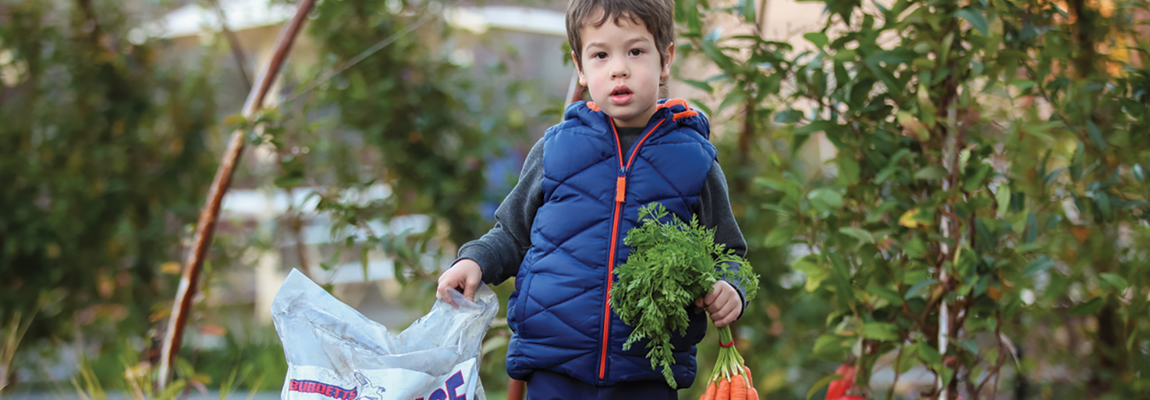
More than 28,000 tonnes of food and garden waste was diverted away from landfill last financial year – thanks to our Food Organics and Garden Organics service (FOGO). By correctly using your lime green-lidded FOGO bin, you’ve helped us turn this material into nutrient-rich compost. Left to decompose in landfill it would release methane, which is 28 times stronger than carbon dioxide.
What’s new?
Cooked bones (as well as raw bones) are now accepted in your FOGO bin. Small amounts of paper towel, tissues, and newspaper to wrap food (if needed) are also accepted.
What not to put in your bin
The following items are our most common FOGO contaminants. Please dispose of these in your household waste bin:
- Tea bags – these often contain plastic which cannot be processed through FOGO.
- Pet waste – harmful pathogens in pet poo and litter are not always killed in the FOGO process.
- Nappies/incontinence products – these contain plastic and pathogens.
- Stickers on fruit and vegetables – peel all plastic stickers off produce before putting it in the bin.
- Compostable coffee cups, plates, bowls and cutlery – although labelled ‘compostable’, some of these items contain substances that can’t be processed through FOGO.
What about FOGO bin liners?
You don’t have to bag your FOGO waste, but if you choose to, we only accept AS4736-certified compostable caddy liners. Check the label to make sure your liners are compostable, made from 100% cornstarch and display the AS4736 code.
For more about how to correctly use your FOGO and other kerbside bins, visit our How to use your bins page.
Top tips to avoid food waste
- Move older products to the front of your fridge or cupboard so you remember to use them.
- Store fruit in the fridge instead of on a bench or table to keep it fresh up to 10 times longer.
- Sometimes food is still safe to eat after the ‘best before’ date. The ‘use by’ date’ tells you when food is no longer safe to eat.